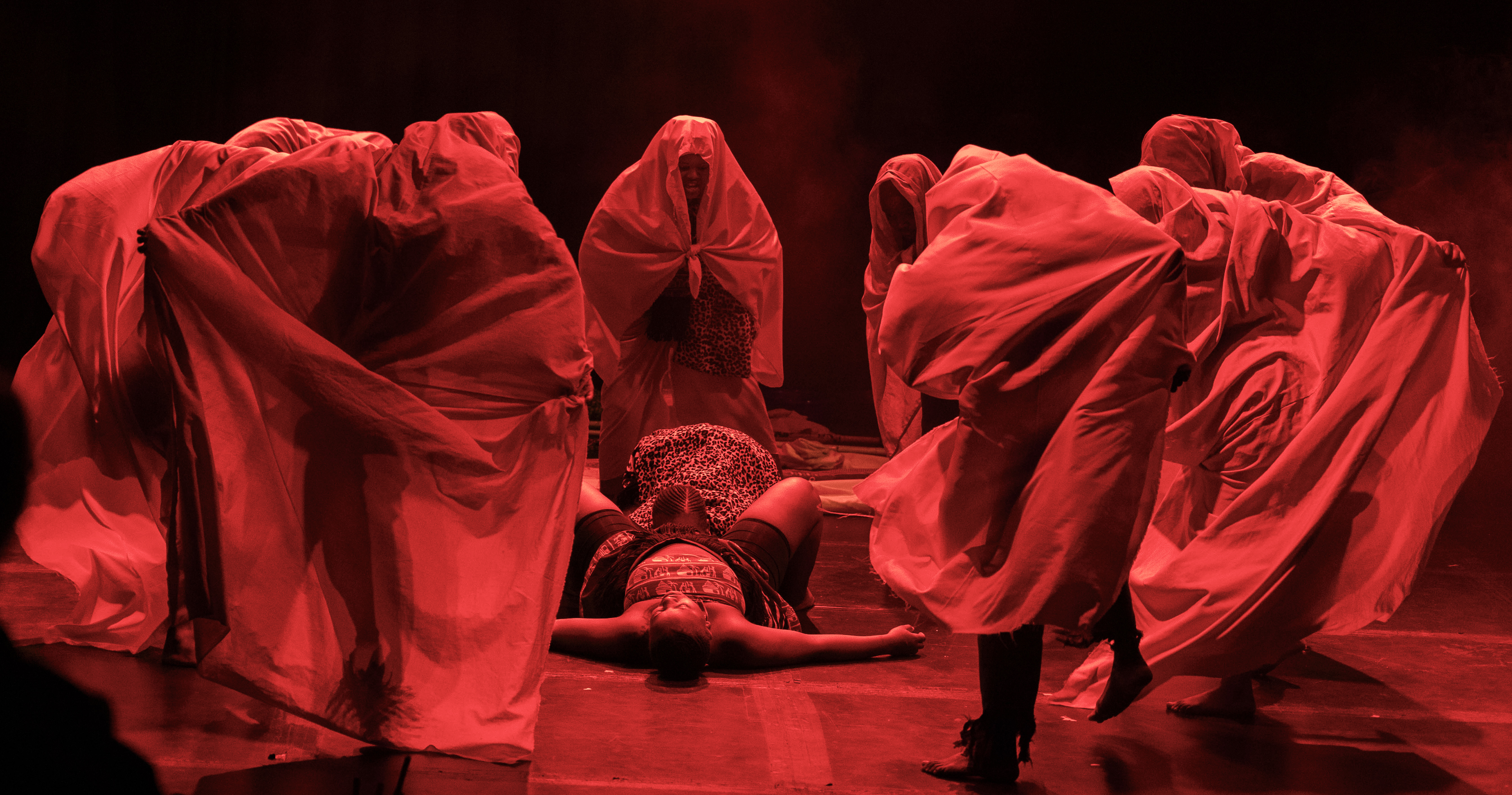This article has been amended to update some factual inaccuracies.
The 2026 National Arts Festival will continue with the assistance of other sponsors, CEO Monica Newton said after the Department of Sport, Arts and Culture revealed that the festival’s funding is not guaranteed.
/file/dailymaverick/wp-content/uploads/2025/11/ED_585232.jpg)
“The National Arts Festival will take place from 26 June to 6 July 2026, supported by our longstanding partners, the Eastern Cape Department of Sport, Recreation, Arts and Culture and Standard Bank — and many other partners who have supported the festival for decades. It takes a nation to raise the National Arts Festival,” Newton said.
She further indicated that the festival continued to engage with the national department on funding for the 2026 festival. Newton pointed out that the National Arts Festival was working in collaboration with several other festivals across the country, which were concerned about the current policy and funding environment.
In a response to a parliamentary question, Minister of Sport, Arts and Culture Gayton McKenzie said the department wanted to support new provincial flagship projects. He said that an organisation could be supported for only one project per financial year.
He said national flagship events, such as the National Arts Festival, had not been defunded since they had the opportunity to apply, like any other festival.
The festival previously received R5.5-million from the national government in a three-year contract from 2022 to 2024, but its funding was not renewed for 2025.
/file/dailymaverick/wp-content/uploads/2025/11/ED_510981.jpg)
Should the department reject the National Arts Festival’s funding application for 2026 about 3,000 jobs will be at risk.
“They applied through the open call process and were not successful (in 2025). National Flagship projects like the Ebubeleni Festival in the Eastern Cape were supported through the same process,” McKenzie said. “The Ebubeleni Festival will take place at the Nelson Mandela Bay Stadium in December,” he said.
Funding ‘not ringfenced’
McKenzie pointed out that funding for national flagship projects was not ringfenced, as they were regarded as cultural and creative industries projects.
“The funds formed part of the open call for the 2025/26 financial year,” he said. “The affected festivals did not make it through the same process.”
He said no industry representative had been consulted before the department made the decision.
Three weeks before, answering a similar question in Parliament, McKenzie said: “There has been widespread false reporting in the media about the commitments to festivals, generally and to particular festivals. During last year’s Suidoosterfees, I expressed that their festival and others should be supported financially in relation to the good work they are doing, an opinion I still hold.
/file/dailymaverick/wp-content/uploads/2025/11/ED_511193.jpg)
“We are still going to meet with all these festivals and come up with a very good master plan that will ensure that festivals thrive and grow. Some of the reactions from organisers have been disappointing, and we are calling on them to be calm and work with the government. There needs to be a sustainable funding mix for the arts without too much reliance on government.
“I would, however, like to add that critical questions need to be posed about festivals that have become reliant on government support to survive, despite being in existence for a very long time. The department has valid concerns about sustainability and supporting festivals in such a way that they no longer need government money.
“Plus, we need to support new and different festivals and new entrants into the space, so that people with fresh and innovative ideas also get a chance, and that festivals that have historically been excluded can also be helped to grow.”
Economic blow
The annual National Arts Festival provides a considerable economic boost to the town of Makhanda.
A study of the economic impact of the 2024 National Arts Festival, by researchers from Nelson Mandela University, found that the economic impact of the festival on the economy of Makhanda had been R57.9-million, and on the Eastern Cape, R131.8-million.
“The decline from previous years can be attributed to factors such as rising inflation and poor economic growth, which have generally decreased domestic tourism. In addition to the festival itself, the [festival] has also become an important local hub for social development in Makhanda: in June/July 2024, the [festival] sourced R6.7-million from the Social Employment Fund that created 1,604 direct jobs in addition to the 247 work opportunities related to the festival itself,” the study found.
Democratic Alliance caucus leader in Makhanda Luvuyo Sizani said the event had, for decades, been the economic heartbeat of the town.
“The festival is more than art and theatre — it is jobs, hope and survival for many families and small businesses. Every year, it brings thousands of visitors, creates temporary employment and boosts our local economy.” DM
An earlier version of this article incorrectly stated that the National Arts Festival would not be funded for 2026. In fact, the festival’s funding application for 2026/2027 is still pending. The article has been updated to reflect this.




 A scene from Selekane at the 2024 National Arts Festival on 28 June 2024 in Makhanda. The festival is an annual celebration of the arts on the African continent. (Photo: Gallo Images / Alet Pretorius)
A scene from Selekane at the 2024 National Arts Festival on 28 June 2024 in Makhanda. The festival is an annual celebration of the arts on the African continent. (Photo: Gallo Images / Alet Pretorius)